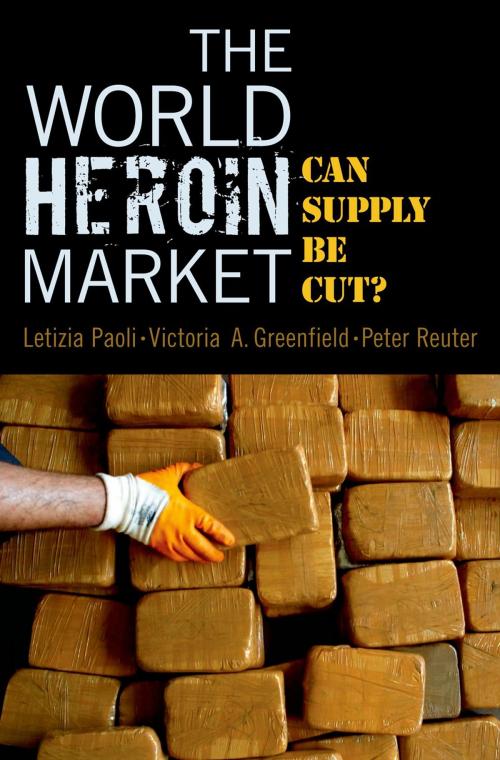The World Heroin Market
Can Supply Be Cut?
Business & Finance, Economics, Economic Development, Nonfiction, Social & Cultural Studies, Political Science, Government, Public Policy, Social Science, Crimes & Criminals, Criminology| Author: | Letizia Paoli, Victoria A. Greenfield, Peter Reuter | ISBN: | 9780190207946 |
| Publisher: | Oxford University Press | Publication: | April 10, 2009 |
| Imprint: | Oxford University Press | Language: | English |
| Author: | Letizia Paoli, Victoria A. Greenfield, Peter Reuter |
| ISBN: | 9780190207946 |
| Publisher: | Oxford University Press |
| Publication: | April 10, 2009 |
| Imprint: | Oxford University Press |
| Language: | English |
Heroin is universally considered the world's most harmful illegal drug. This is due not only to the damaging effects of the drug itself, but also to the spread of AIDS tied to its use. Burgeoning illegal mass consumption in the 1960s and 1970s has given rise to a global market for heroin and other opiates of nearly 16 million users. The production and trafficking of opiates have caused crime, disease, and social distress throughout the world, leading many nations to invest billions of dollars trying to suppress the industry. The failure of their efforts has become a central policy concern. Can the world heroin supply actually be cut, and with what consequences? The result of a five-year-long research project involving extensive fieldwork in six Asian countries, Colombia, and Turkey, this book is the first systematic analysis of the contemporary world heroin market, delving into its development and structure, its participants, and its socio-economic impact. It provides a sound and comprehensive empirical base for concluding that there is little opportunity to shrink the global supply of heroin in the long term, and explains why production is concentrated in a handful of countries--and is likely to remain that way. On the basis of these findings, the authors identify a key set of policy opportunities, largely local, and make suggestions for leveraging them. This book also offers new insights into market conditions in India, Tajikistan, and other countries that have been greatly harmed by the production and trafficking of illegal opiates. A deft integration of economics, sociology, history, and policy analysis, The World Heroin Market provides a rigorous and vital look into the complex--and resilient--global heroin trade.
Heroin is universally considered the world's most harmful illegal drug. This is due not only to the damaging effects of the drug itself, but also to the spread of AIDS tied to its use. Burgeoning illegal mass consumption in the 1960s and 1970s has given rise to a global market for heroin and other opiates of nearly 16 million users. The production and trafficking of opiates have caused crime, disease, and social distress throughout the world, leading many nations to invest billions of dollars trying to suppress the industry. The failure of their efforts has become a central policy concern. Can the world heroin supply actually be cut, and with what consequences? The result of a five-year-long research project involving extensive fieldwork in six Asian countries, Colombia, and Turkey, this book is the first systematic analysis of the contemporary world heroin market, delving into its development and structure, its participants, and its socio-economic impact. It provides a sound and comprehensive empirical base for concluding that there is little opportunity to shrink the global supply of heroin in the long term, and explains why production is concentrated in a handful of countries--and is likely to remain that way. On the basis of these findings, the authors identify a key set of policy opportunities, largely local, and make suggestions for leveraging them. This book also offers new insights into market conditions in India, Tajikistan, and other countries that have been greatly harmed by the production and trafficking of illegal opiates. A deft integration of economics, sociology, history, and policy analysis, The World Heroin Market provides a rigorous and vital look into the complex--and resilient--global heroin trade.















